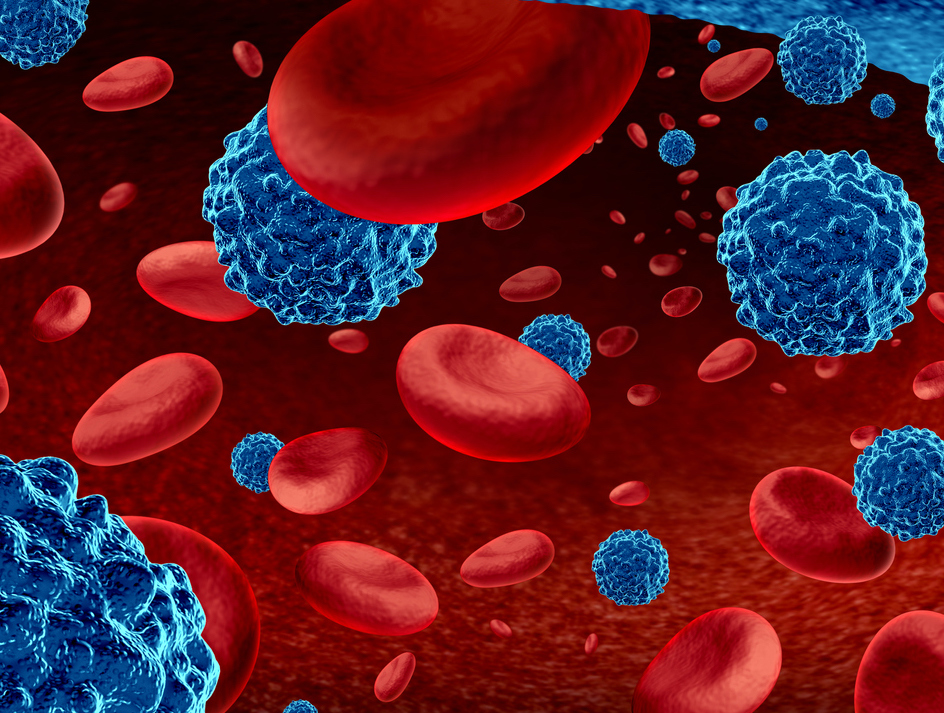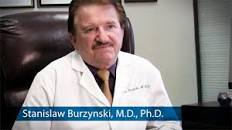
Recently Diagnosed or Relapsed? Stop Looking For a Miracle Cure, and Use Evidence-Based Therapies To Enhance Your Treatment and Prolong Your Remission
Multiple Myeloma an incurable disease, but I have spent the last 25 years in remission using a blend of conventional oncology and evidence-based nutrition, supplementation, and lifestyle therapies from peer-reviewed studies that your oncologist probably hasn't told you about.
Click the orange button to the right to learn more about what you can start doing today.
- You are here:
- Home »
- Blog »
- Multiple Myeloma »
- End-Stage Myeloma- Antineoplaston Therapy
End-Stage Myeloma- Antineoplaston Therapy

“A doctor (Burzynski) who has battled the Federal Food and Drug Administration for 14 years for prescribing unapproved cancer drugs (ANP for MM) was acquitted today by a Federal jury…”
I was diagnosed with multiple myeloma (MM) in 2/94. I underwent many Food and Drug Administration (FDA) approved therapies between my diagnosis in early 1994 and my final appointment in 9/1997. Surgery, Chemotherapy, Radiation (several times). Remission, relapse, remission, relapse and finally “we can do nothing more for you…” I heard those fateful words, given to me by my fourth oncologist in as many years, in September of 1997.
I understand that conventional oncology doesn’t know how to cure multiple myeloma. MM is a crafty, complicated blood cancer. I understand why the FDA regulates medicine in the United States. I’ve read the stories about how unscrupulous salesmen sold snake oil to unsuspecting Americans long ago.
I get it, I really do.
But what I don’t get is why, when conventional oncology can’t help a cancer patient, which happens all too frequently, the FDA pitches a fit. The article linked below explains how the FDA spent 14 years and thousands of taxpayer dollars, trying to put Dr. Stanislaw Burzynski in jail.
Dr. Burzynski’s alleged crime? Developing and selling me antineoplaston therapy. After conventional oncology turned me loose, I went to the Burzynski Research Institute and underwent ANP therapy for about 17 months. I went from end-stage multiple myeloma to complete remission.
Where I have remained to this day. Complete remission…no MM in my body…
Granted, Burzynski is controversial. Not everyone who tries ANP is as successful in treating their cancer as I was. But then again, they were not helped by conventional oncology either. My conventional therapies left me with a host of long-term and late stage side effects that will probably kill me some day.
My autologous stem cell transplant was experimental. ANP therapy was experimental. My ASCT cost my insurance company about $250,000 ( I think). ANP therapy cost me about $110,000. My health insurance company, Medical Mutual of Ohio, approved payment of my ASCT. Medical Mutual of Ohio denied payment for everything associated with ANP.
The mission of the FDA is to protect public health by insuring the safety, efficacy and security of human drugs.
How does spending 14 years suing Burzynski insure the safety of Americans?
David Emerson
- MM Survivor
- MM Cancer Coach
- Director PeopleBeatingCancer
Recommended Reading:
- Evidence-based Medicine and the Multiple Myeloma Patient
- Multiple Myeloma- If I Knew Then What I Know Now
- Conventional vs. Non-Conventional Cancer Therapies
“A doctor who has battled the Federal Food and Drug Administration for 14 years for prescribing unapproved cancer drugs was acquitted today by a Federal jury of the last remaining charge against him: violating a judge’s order banning shipments of the drugs across state lines.
The verdict was the culmination of years of legal wrangling between the Federal Government and the doctor, Stanislaw Burzynski, over a group of drugs he developed and calls anti neoplastons. These drugs have never been approved by the Food and Drug Administration, which had no comment throughout the case nor one on today’s verdict.
Proponents of alternative medicine watched the case closely.
”It’s a great day for us,” Dr. Burzynski said after the verdict.
He said that since 1983 he had lived under the fear that he could go to prison at any time. ”For the last, almost two years, I was not a free man,” he said, adding that he had to report to the Federal courthouse here every two weeks, had his passport confiscated and needed permission to travel out of the state.
”So finally I feel great relief,” he said. ”It’s like the beginning of the rest of the life.”
Dr. Burzynski began treating patients with the drugs in private practice in the late 1970’s. In 1983, the drug agency filed a civil suit in Federal court seeking to stop him from using them. At that time Judge Gabrielle McDonald of Federal District Court issued an injunction, amended in 1984, that barred the doctor from introducing his drugs into interstate commerce but did not bar his treatment of patients in Texas. The order also retained jurisdiction of the case should either side need clarification or remedy.
In November 1995, a grand jury issued a 75-count indictment against the doctor and his clinic, the Burzynski Research Institute in Stafford, a suburb of Houston. The charges included 40 counts of interstate delivery of an unapproved drug; 34 counts of mail fraud for using the mails to file false or misleading claims to insurers, and one count of contempt for violating Judge McDonald’s order.
At Dr. Burzynski’s first trial earlier this year, the jury deadlocked 6 to 6 after more than a week of deliberations. Judge Simeon Lake 3d of Federal District Court declared a mistrial and then issued a directed verdict of acquittal on the counts of mail fraud, saying the Government had failed to prove its case.
On the first day of the retrial, the Government moved to dismiss the 40 counts of interstate delivery against the doctor and all remaining counts against his institute, leaving only the contempt count resolved today.
Explaining the decision to drop those charges, the chief prosecutor, Michael Clark, said today that his team decided to go to the heart of the case, the contempt charge, rather than to have another drawn-out trial that would do no one any good.
The prosecution tried to portray Dr. Burzynski as someone who had consistently and willfully violated the law and the injunction.
Defense lawyers noted that Dr. Burzynski had clear policies for his staff and patients, even making the patients sign waivers that they understood that he could not ship the drug out of state. They argued that the original court order was ambiguous because while it barred interstate shipment of the drugs, it did not bar their use in Texas. They also pointed out that the Government had the option to go back to the court for clarification and enforcement.
”I just don’t think that the state proved their case,” said one juror, Stephenie Shapiro, who is a lawyer. ”There was enough ambiguity in the document that they weren’t willing to have a criminal finding against someone. And it was very unanimous from the beginning. It’s not like anybody had to be talked into it.”



